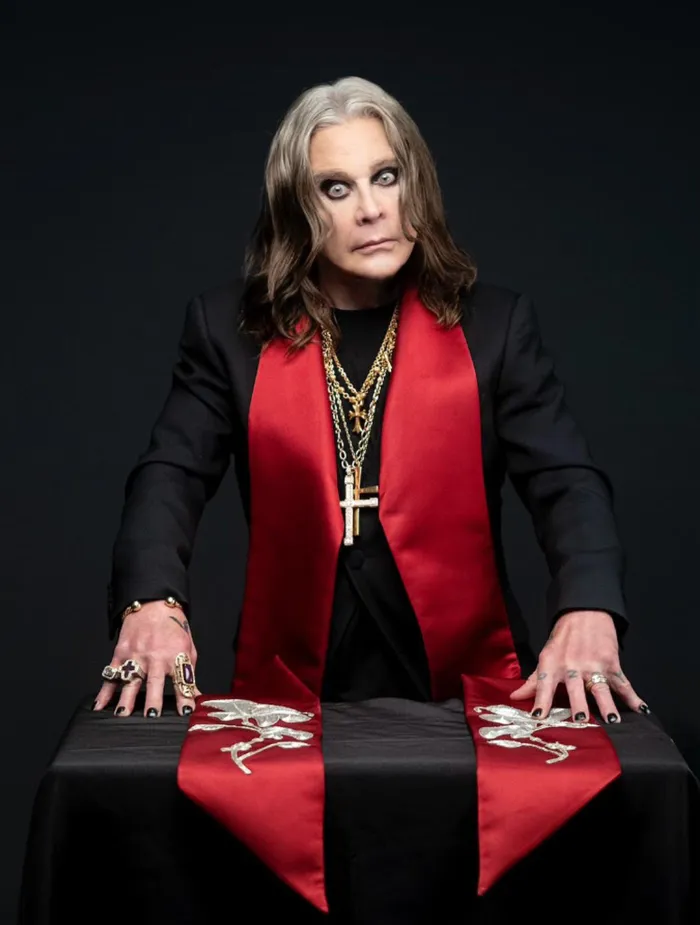Remembering Ozzy Osbourne: the man who took heavy metal to hell and back - and made it legendary

The late Ozzy Osbourne - a legend who redefined heavy metal and ruled its darkest realms.
Image: X
The music world was shaken to its core on Tuesday, July 22, with the news that legendary Black Sabbath frontman and solo icon Ozzy Osbourne had passed away at the age of 76.
“It is with more sadness than mere words can convey that we have to report that our beloved Ozzy Osbourne has passed away this morning,” read a statement from the Osbourne family. “He was with his family and surrounded by love. We ask everyone to respect our family's privacy at this time.”
Just days before, his daughter Kelly Osbourne had publicly denied rumours that her father was on his deathbed, calling speculation around his health “cruel and unfounded.”
That denial, heartbreakingly timed, underscored the whiplash volatility that defined both Osbourne’s life and the media’s fascination with it.
While the cause of death has not yet been disclosed, the announcement comes just weeks after his historic final performance in his hometown of Birmingham, England, at a special Black Sabbath reunion concert, Back to the Beginning.
Reuniting with original bandmates Geezer Butler, Tony Iommi and Bill Ward, the show marked the band’s first time on stage together in two decades and was described as Osbourne’s “final bow.”
Since news of his death broke, an outpouring of grief and reverence has filled social media timelines. Fans, fellow musicians and pop culture figures alike have been paying tribute to a man many credit with helping define - and redefine - what heavy metal music truly is.
@MissSassbox wrote: “Ozzy Osbourne has transitioned to his next realm just a few weeks after giving his fans one of the greatest and most aptly timed goodbyes in music history. An absolute rock god and music legend... Ozzy, wherever you're going... I know you'll give them hell.”
MTV shared: “We're deeply saddened to learn that rock & roll icon Ozzy Osbourne, famously known as the Prince of Darkness, passed away this morning... We know his legacy will live on through music-lovers around the world.”
@DesireeAmerica4 added: “Today we lost the Prince of Darkness, Ozzy Osbourne. His voice defined heavy metal and carried a generation. Rest in peace.”
On Facebook, singer-songwriter Nikki Sixx wrote: “So many amazing tributes are rolling in about Ozzy. What a loss to music all around. But I wanted to share something a little more personal - a moment that shows just how kind and sweet he truly was."
"My daughter Frankie had set up a stand to sell duct tape wallets (I know 😃) in a neighbourhood where both Ozzy and I used to live - Hidden Hills, California."
"I was standing there with her when, all of a sudden, I heard someone shouting my name. It was Ozzy. He wasn’t driving, so he jumped out of a slowly rolling car and came running over to our little stand."
Sixx added: "He asked what was going on, and when I explained, he laughed and said, ‘Well then, I’ll take them all.’ That was Ozzy. I’ll always be grateful that he gave our little ratty band from Hollywood our first big break… Thank you for the music, for your kindness and your wicked, wicked sense of humour. Journey well, our friend.”
And indeed, few artists have done more to shape the sound, style and spirit of heavy metal than Osbourne.
As the voice of Black Sabbath - formed in Birmingham in the late 1960s - he led the charge into darker, heavier musical territory than rock had ever explored before.
With thunderous riffs, brooding lyrics and his haunting, instantly recognisable vocals, Osbourne helped turn Sabbath’s sound into a new musical language that would go on to influence thousands of bands across the globe.
The band’s 1970 debut album, “Black Sabbath”, released on Friday the 13th, is widely regarded as one of the first true heavy metal records.
Tracks like “Paranoid”, “War Pigs” and “Iron Man" became instant anthems, fusing doom-laden guitar tones with anti-establishment messages and magically-infused themes.
The album's distorted guitar tones, powered by Iommi’s pioneering use of drop tuning and Osbourne’s ghostly vocal style, laid the foundation for what would become heavy metal’s defining features.
But Osbourne didn’t stop there. After leaving Black Sabbath in 1979, he embarked on a wildly successful solo career, delivering a string of classic albums including “Blizzard of Ozz" and "Diary of a Madman".
Songs like “Crazy Train”, “Mr. Crowley”, and “No More Tears” showcased not only his staying power but his willingness to evolve, introducing virtuoso guitar work (courtesy of Randy Rhoads) and more radio-friendly metal hooks, without losing his edge.
Osbourne also redefined heavy metal through performance. His over-the-top stage antics, including the infamous bat-biting incident, brought shock rock into the mainstream and gave metal a new kind of theatricality.
His self-anointed title, the Prince of Darkness, became more than a persona - it was a cultural symbol, embraced by generations of headbangers who saw in him a rebellious hero, unafraid to be different.
Though the Prince of Darkness may have taken his final bow, his influence is eternal.
From the early Sabbath days to his solo reign and beyond, Osbourne didn’t just help create heavy metal - he redefined it with every scream, every riff and every defiant step into the darkness.
Related Topics: